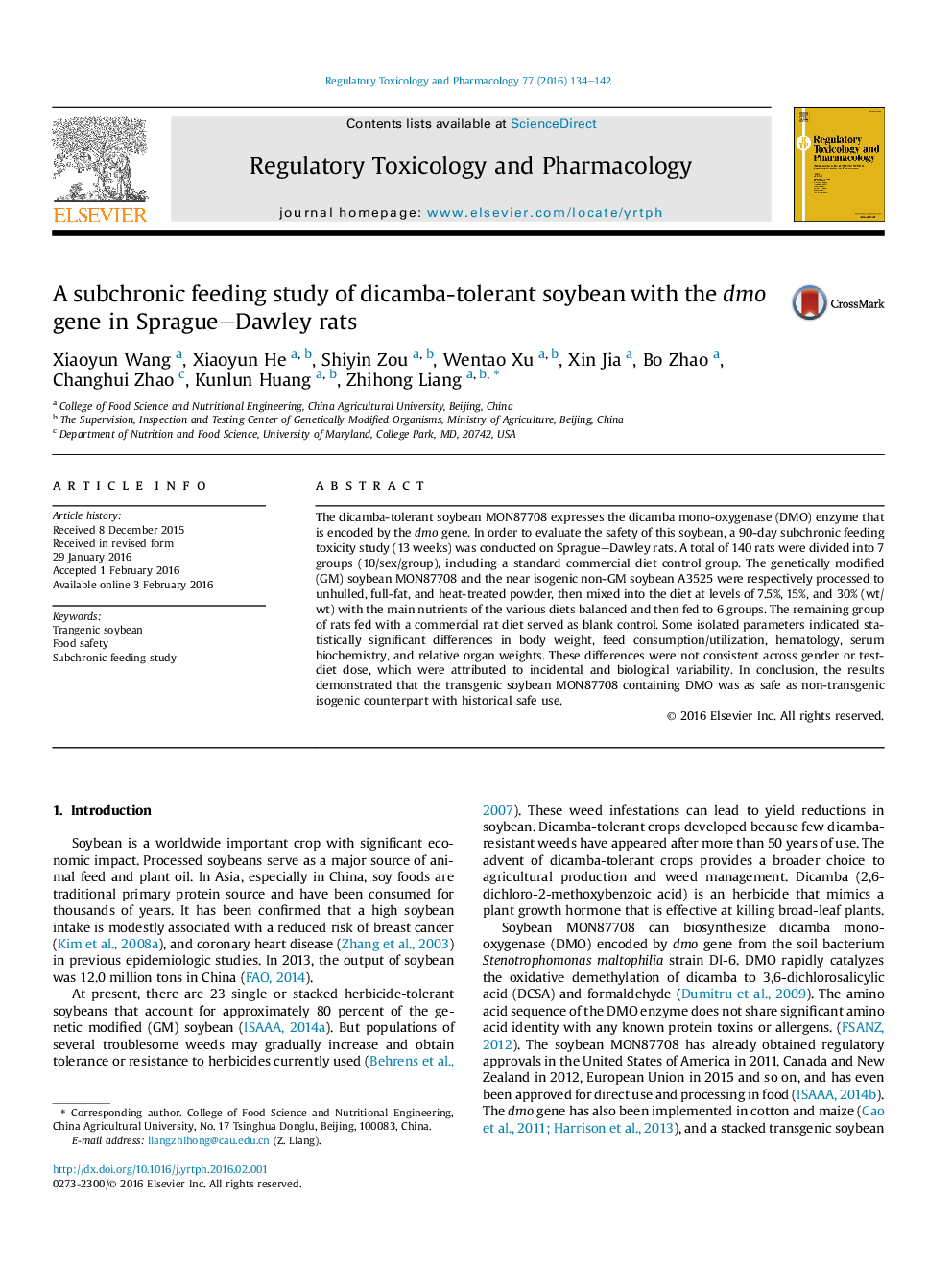| Article ID | Journal | Published Year | Pages | File Type |
|---|---|---|---|---|
| 5855968 | Regulatory Toxicology and Pharmacology | 2016 | 9 Pages |
â¢A 90-day subchronic toxicological study of the dicamba-tolerant soybean, MON87708, was carried out for safety assessment.â¢No adverse effects were observed in rats consuming the test substance at any time during the study.â¢The MON87708 soybean was as safe as the non-transgenic isogenic counterpart, A3525, at dietary inclusions up to 30%.
The dicamba-tolerant soybean MON87708 expresses the dicamba mono-oxygenase (DMO) enzyme that is encoded by the dmo gene. In order to evaluate the safety of this soybean, a 90-day subchronic feeding toxicity study (13 weeks) was conducted on Sprague-Dawley rats. A total of 140 rats were divided into 7 groups (10/sex/group), including a standard commercial diet control group. The genetically modified (GM) soybean MON87708 and the near isogenic non-GM soybean A3525 were respectively processed to unhulled, full-fat, and heat-treated powder, then mixed into the diet at levels of 7.5%, 15%, and 30% (wt/wt) with the main nutrients of the various diets balanced and then fed to 6 groups. The remaining group of rats fed with a commercial rat diet served as blank control. Some isolated parameters indicated statistically significant differences in body weight, feed consumption/utilization, hematology, serum biochemistry, and relative organ weights. These differences were not consistent across gender or test-diet dose, which were attributed to incidental and biological variability. In conclusion, the results demonstrated that the transgenic soybean MON87708 containing DMO was as safe as non-transgenic isogenic counterpart with historical safe use.
